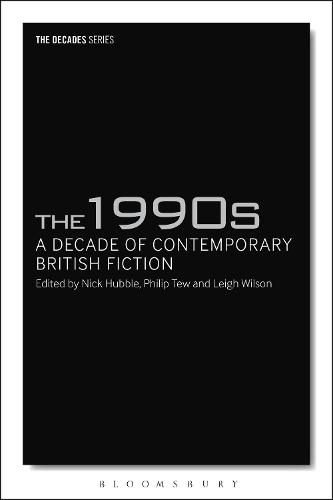
The 1990s: A Decade of Contemporary British Fiction
(Hardback)
Available Formats
Publishing Details
The 1990s: A Decade of Contemporary British Fiction
By (Author) Dr Nick Hubble
Edited by Professor Philip Tew
Edited by Dr Leigh Wilson
Bloomsbury Publishing PLC
Bloomsbury Academic USA
21st May 2015
United States
Classifications
Tertiary Education
Non Fiction
Literary studies: c 1900 to c 2000
823.91409
Physical Properties
Hardback
303
Width 156mm, Height 234mm
639g
Description
How did social, cultural and political events in Britain during the 1990s shape contemporary British Fiction From the fall of the Berlin Wall to the turn of the millennium, the 1990s witnessed a realignment of global politics. Against the changing international scene, this volume uses events abroad and in Britain to examine and explain the changes taking place in British fiction, including: the celebration of national identities, fuelled by the move toward political devolution in Northern Ireland, Scotland and Wales; the literary optimism in urban ethnic fictions written by a new generation of authors, born and raised in Britain; the popularity of neo-Victorian fiction. Critical surveys are balanced by in-depth readings of work by the authors who defined the decade, including A.S. Byatt, Hanif Kureishi, Will Self, Caryl Phillips and Irvine Welsh: an approach that illustrates exactly how their key themes and concerns fit within the social and political circumstances of the decade.
Reviews
The 1990s is another installment in The Decades Series, which begins in the 1970s and extend to the 2000s. UK-based scholars Hubble, Tew, and Wilson collected eight essays, all by British scholars, that look at British fiction of the 1990s in the context of emergent globalism and dynamic geopolitical events. Works by writers of this period often undermine popular opinions and the cultural and ideological myths propagated by mainstream media. The contributors discuss a wide array of novelists and fiction writersMartin Amis, Iain Banks, A. S. Byatt, Will Self, Christine Brooke-Rose, Irvine Welsh, James Kelman, Julian Barnes, to name only a few. The essays are provocative, incisive, and carefully researched, and the volume is notable for its addenda, which include a list of writers, a chronology of national events, and a time line of international events. Such a period approach to fiction writing offers a vital clue to the connection between art and the world, a connection often not evident at the moment of publication. Summing Up: Recommended. Upper-division undergraduates through faculty. -- D. W. Madden, California State University, Sacramento, USA * CHOICE *
Nick Bentley's contribution on 'national identities in 1990s British fiction' is lucid and thoughtful ... [and] will be an excellent resource for undergraduates ... [whilst] Upstone makes an original and useful contribution to the scholarship on 90s black British literature. * Review of English Studies *
Author Bio
Nick Hubble is Reader in English at Brunel University London, UK and the co-editor of The Science Fiction Handbook (2013), The 1970s (2014), The 1990s (2015), The 2000s (2015) and London in Contemporary British Fiction (2016) all published by Bloomsbury. Philip Tew is Professor of English (Post-1900 Literature) at Brunel University London, UK, Director of Brunel's Centre for Contemporary Writing and Director of the Modern and Contemporary Fiction Studies Network. Leigh Wilson is Reader in Modern Literature at the University of Westminster, UK. She is the author of Modernism (2007) and Modernism and Magic (2013) and co-editor of The 1980s (2014) and The 2000s (2015) published by Bloomsbury.
